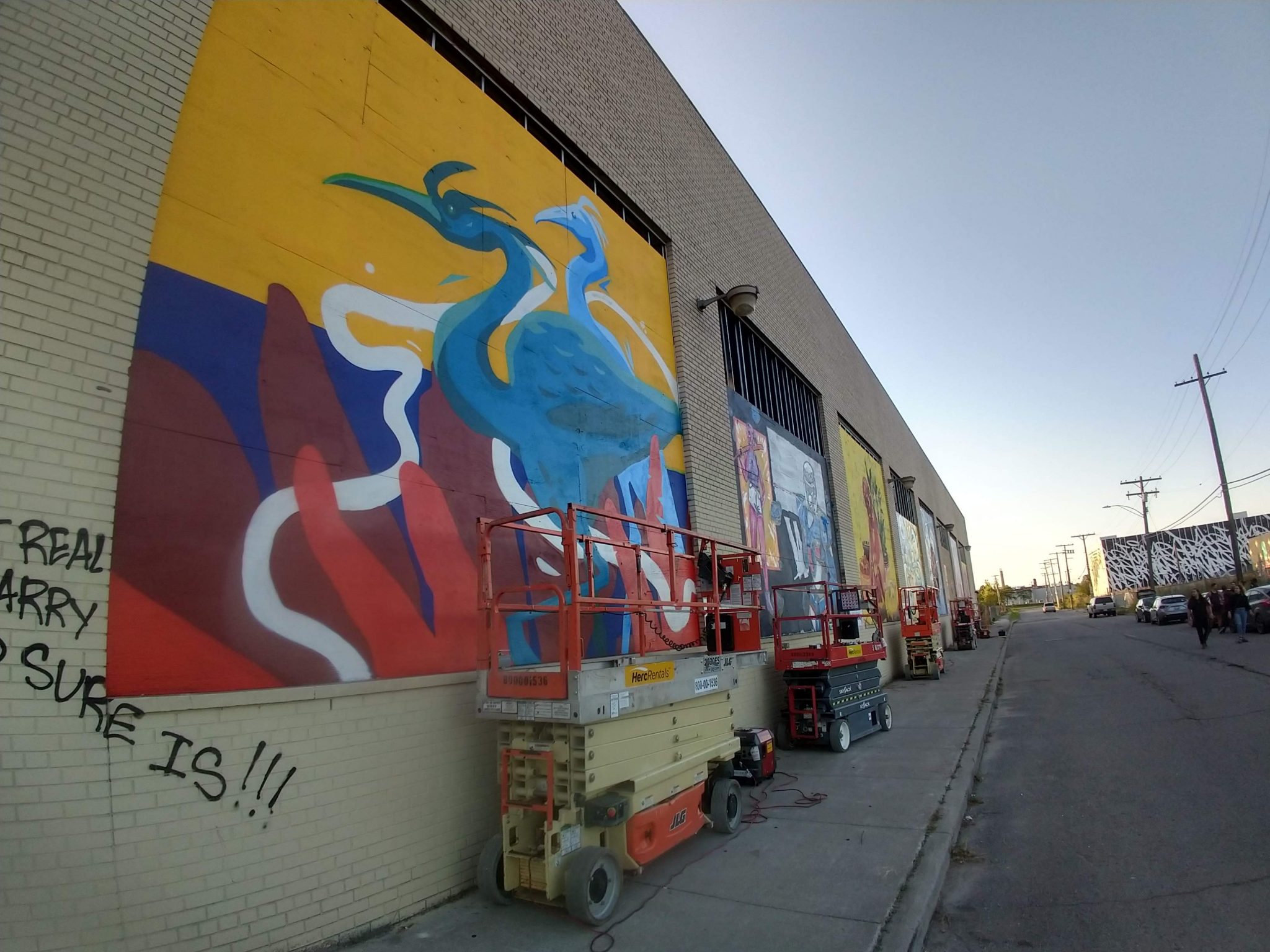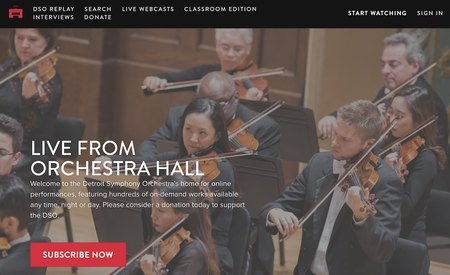Michigan Arts Can Move Online, But Still Face Uncertain Future
WDET’s Ryan Patrick Hooper join Cheyna Roth and Jake Neher on MichMash to talk about the challenges facing the arts in Michigan.

The spread of COVID-19 is forcing many cultural organizations and artists to cancel events and close their doors to the public.
“I think it’s going to be a real creative time.” – Poet jessica Care moore.
As the virus began to spread, museums across the state began to shut down, theaters and entertainment venues started to cancel their shows, and people in the creative arts began to wonder if they would survive until crowds could gather again.
Click on the player above to hear MichMash speak with WDET’s Ryan Patrick Hooper about what this means for the future of the arts in Michigan.
Trusted, accurate, up-to-date
WDET is here to keep you informed on essential information, news and resources related to COVID-19.
This is a stressful, insecure time for many. So it’s more important than ever for you, our listeners and readers, who are able to donate to keep supporting WDET’s mission. Please make a gift today.

There’s been a shift by different cultural institutions in the Grand Rapids area to start making experiences virtual for would-be visitors to places like the Frederik Meijer Gardens and Sculpture Park, the John Ball Zoo and the Grand Rapids Art Museum. The hope is to keep people engaged in the arts that are stuck at home.
In Detroit, Hooper said, the Detroit Symphony Orchestra (DSO) is one of the first in the world to offer its entire catalog of performances dating back to 2011 free and open to the public. Normally this costs $50 per year.
“When we cancelled our first set of concerts we said in our press release that normally when there’s a crisis, the first thing that happens is the musicians come out and play and try to heal and be part of the recovery of whatever the crisis is,” said Anne Parsons, president of the DSO.
“The horrible thing about this one is that we have been silenced in a way by not being able to convene because an orchestra is more than 50 people,” she said.
“If musicians are able to survive this, yes, we may see a creative renaissance.” – Ryan Patrick Hooper of WDET’s Culture Shift.
Outside the musical world, other, independent artists are trying to get their craft to the masses.
jessica Care moore is a nationally known poet from Detroit. She said this could be a prolific time for the arts, despite the immediate difficulties.
“I think it’s going to be a real creative time,” she said. “I think a lot of artists are going to come out of this moment.”
Make no mistake, however, despite their attempts to keep culture and art in the forefront of people’s minds, this is going to be a difficult time for the arts, Hooper said.
The largest art institution in the United States by budget, the Metropolitan Opera in New York, laid off all of its union musicians and, essentially, their entire creative staff.
“If musicians are able to survive this, yes we may see a creative renaissance,” Hooper said. “Artists are taking a hit just like everybody else. Like the service industry, like the auto industry, like every industry on the planet right now.”
